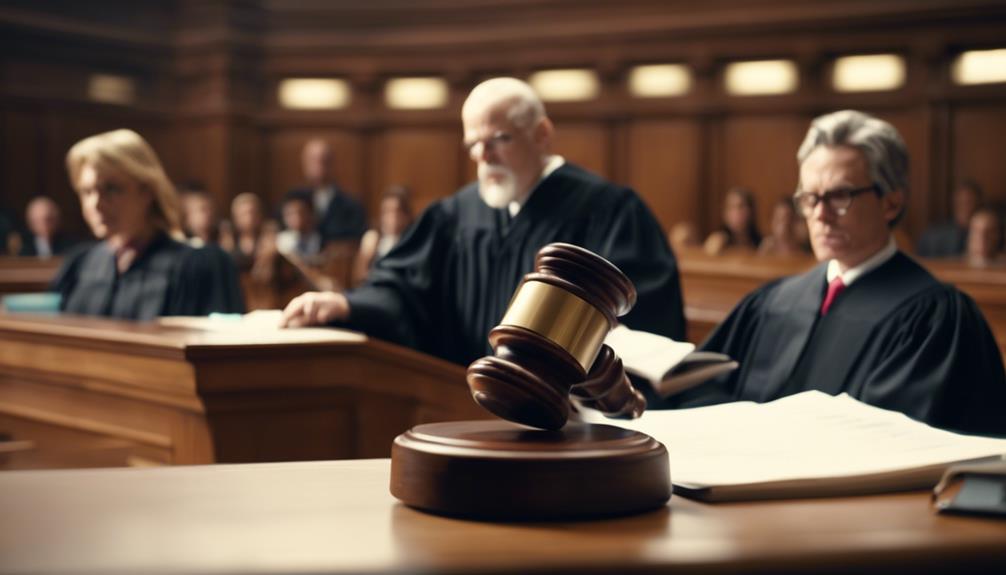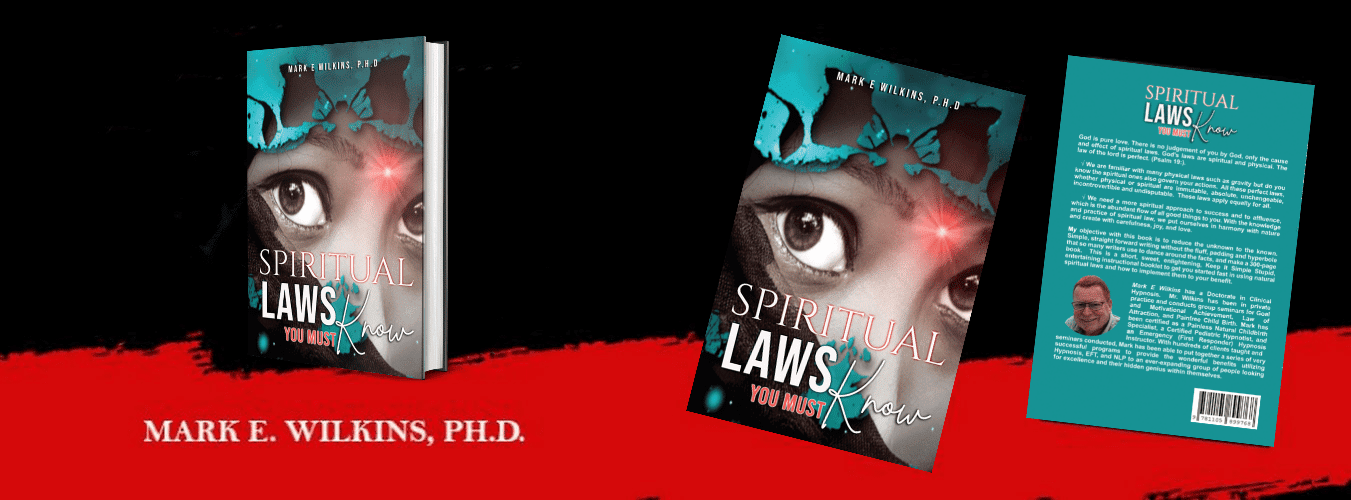
Exploring the depths of the law of free will reveals a profound journey of self-discovery and empowerment. Delving into this intricate concept not only illuminates the mysteries of human agency and choice but also lays the foundation for a life lived authentically and purposefully. By understanding the nuances of free will, individuals open the door to a world where decisions are not merely reactions but conscious creations of one's destiny. The implications of understanding free will extend far beyond mere philosophical discourse, touching the very core of what it means to be human.
Significance of Free Will
The profound significance of free will lies at the core of human existence, shaping our mental health, motivation, ethical behavior, and sense of responsibility. At the heart of free will is the ability to make decisions, a power that carries immense weight in our lives. The act of decision-making is not merely a cognitive process but a spiritual journey that defines who we are and what we stand for. It is through the exercise of our free will that we navigate the complex web of choices presented to us, shaping the very essence of our being.
Ethics and responsibility are intertwined with the concept of free will. When we acknowledge our ability to make choices, we also embrace the ethical implications of those choices. Each decision we make carries a moral weight, influencing not only our own path but also the world around us. The awareness of this interconnectedness fosters a sense of responsibility, compelling us to act in ways that align with our values and beliefs.
Ultimately, free will is not just a philosophical concept; it is a guiding principle that shapes our reality. By recognizing the power we hold to make decisions, we tap into the potential for growth, transformation, and self-actualization. Embracing our free will is not only a means of empowerment but a sacred duty to honor the essence of our humanity.
Philosophical Foundations
Exploring the depths of human consciousness and the intricacies of moral agency, the philosophical foundations of free will investigate the profound essence of conscious choice within the fabric of existence. In the domain of existential philosophies, the concept of free will holds a paramount position, emphasizing the significance of shaping one's identity through deliberate and conscious decisions. It is not merely about the act of choosing but delves much less into the core of what it means to be human, to exist as a being capable of shaping one's destiny through choices.
Rather than merely a mechanistic response to stimuli, embracing free will elevates the human experience to something else, something beyond the deterministic view of life. It is an acknowledgment of the inherent dignity and responsibility that come with the power to choose, to carve a path through the intricate web of possibilities that life presents. Choosing consciously, with awareness and intention, becomes a noble endeavor that defines the essence of human existence.
Philosophical teachings often stress the importance of cultivating the ability to make better choices, recognizing that personal growth and development stem from embracing the agency inherent in free will. It is through the exercise of this capacity for choice that individuals transcend mere existence, stepping into the domain of self-actualization and realization of their true potential.
Psychological Implications

Exploring the psychological implications of embracing free will reveals a profound journey of self-discovery and empowerment within the sphere of human consciousness. Belief in free will is intricately linked to mental health outcomes and overall well-being. When individuals acknowledge their capacity to make choices, they often experience a sense of control over their lives, leading to reduced stress and anxiety. This realization not only fosters a positive mindset but also enhances intrinsic motivation, propelling individuals towards greater performance and creativity in various aspects of their lives.
Moreover, individuals who firmly believe in their ability to choose and take ownership of their actions are more likely to persevere and successfully complete tasks. This sense of agency instills a deep sense of responsibility and accountability, driving individuals towards achieving their goals with determination and resilience. Embracing free will also paves the way for improved ethical decision-making, as individuals understand the consequences of their choices and aim to align their actions with their values.
Ethical Decision-Making
Within the domain of ethical decision-making lies the profound interplay of individual values and moral compass, guiding one's choices towards a harmonious alignment with universal principles. It is a sacred journey between personal integrity and the greater good, where each step taken resonates with the symphony of cosmic justice. When individuals set out on the path of ethical decision-making, they become custodians of virtue, entrusted with the responsibility to uphold the pillars of trust, respect, and fairness in their interactions with others.
Ethical decision-making is not merely a cognitive process but a spiritual exploration that delves into the depths of one's soul, seeking to unearth the truths that govern our actions. It requires individuals to transcend the limitations of self-interest and ego, embracing a higher consciousness that recognizes the interconnectedness of all beings. In this interconnected web of existence, every decision carries a ripple effect, shaping the fabric of reality in ways both seen and unseen.
To engage in ethical decision-making is to embrace the essence of free will, acknowledging the power we hold to mold our destinies through the choices we make. It is a confirmation of our divine nature, affirming our capacity to act as agents of change in a world hungry for integrity and moral courage. As we navigate the complexities of ethical dilemmas, let us remember that our choices are not merely reflections of who we are but beacons of light illuminating the path towards a more just and compassionate society.
Legal Ramifications

Within the intricate tapestry of legal systems, the concept of free will serves as the cornerstone for understanding human agency and accountability.
As we navigate the domains of rights and responsibilities, we are met with the stark realization of the boundaries that define our actions and the consequences that follow.
In the domain of law, the interplay between free will and its legal ramifications reveals a profound symbiosis that shapes the course of justice and the fabric of societal order.
Rights and Responsibilities
In the domain of legal discourse, the intricate interplay between individual rights and responsibilities, particularly in the context of free will, reveals a profound tapestry of ethical considerations and societal obligations.
- Embracing one's rights entails embracing the responsibility that accompanies them.
- Upholding individual autonomy requires a deep understanding of one's interconnectedness with the world.
- Recognizing societal obligations involves negotiating the delicate balance between personal freedom and collective welfare.
- The evolution of legal frameworks mirrors the evolution of human consciousness towards a more harmonious coexistence with all beings.
Boundaries and Consequences
Starting the investigation of boundaries and consequences within the domain of free will illuminates the intricate web of legal ramifications that intertwine personal autonomy with ethical considerations and societal obligations.
Recognizing and respecting the boundaries of free will is not only an ethical imperative but a legal necessity. Failure to uphold these boundaries can result in grave legal consequences, ranging from civil suits to criminal charges.
Informed consent stands as a cornerstone principle in legal contexts, emphasizing the importance of honoring individuals' autonomy and decision-making capabilities. Upholding free will within the legal sphere is vital for maintaining a just and equitable society where individual rights are safeguarded.
Embracing these boundaries and understanding their legal ramifications is essential for fostering a harmonious coexistence grounded in respect and ethical integrity.
Personal Empowerment
The essence of personal empowerment lies in the realization that every individual holds the key to their own destiny through the understanding and application of the law of free will.
Self-Discovery: By delving into the depths of free will, one reveals layers of their true self, opening up hidden potential and purpose.
Choice as Creation: Each decision made is a brushstroke on the canvas of life, painting a unique masterpiece that reflects one's essence.
Responsibility as Freedom: Embracing accountability liberates the soul, for in owning one's choices, the power to transform and transcend is found.
Alignment with Truth: The path to personal empowerment is paved with authenticity, where inner convictions guide actions, and integrity reigns supreme.
In the domain of personal empowerment, the law of free will serves as a beacon of light, illuminating the way to self-mastery and fulfillment. As individuals navigate the intricate dance between choice and consequence, they discover the limitless potential residing within.
It is through this journey of self-discovery, conscious creation, and embracing responsibility that true empowerment blossoms. By aligning with one's deepest truths and values, the essence of personal empowerment is not merely realized but embodied, leading to a life of purpose, authenticity, and profound inner freedom.
Conclusion
In embracing the law of free will, individuals set out on a transformative journey towards self-discovery and empowerment.
By understanding and embodying the principles of free will, one can navigate life with purpose, integrity, and conscious decision-making.
Just as a sculptor molds clay to create a masterpiece, learning the law of free will allows individuals to shape their destinies and cultivate a life filled with meaning, authenticity, and profound inner freedom.

